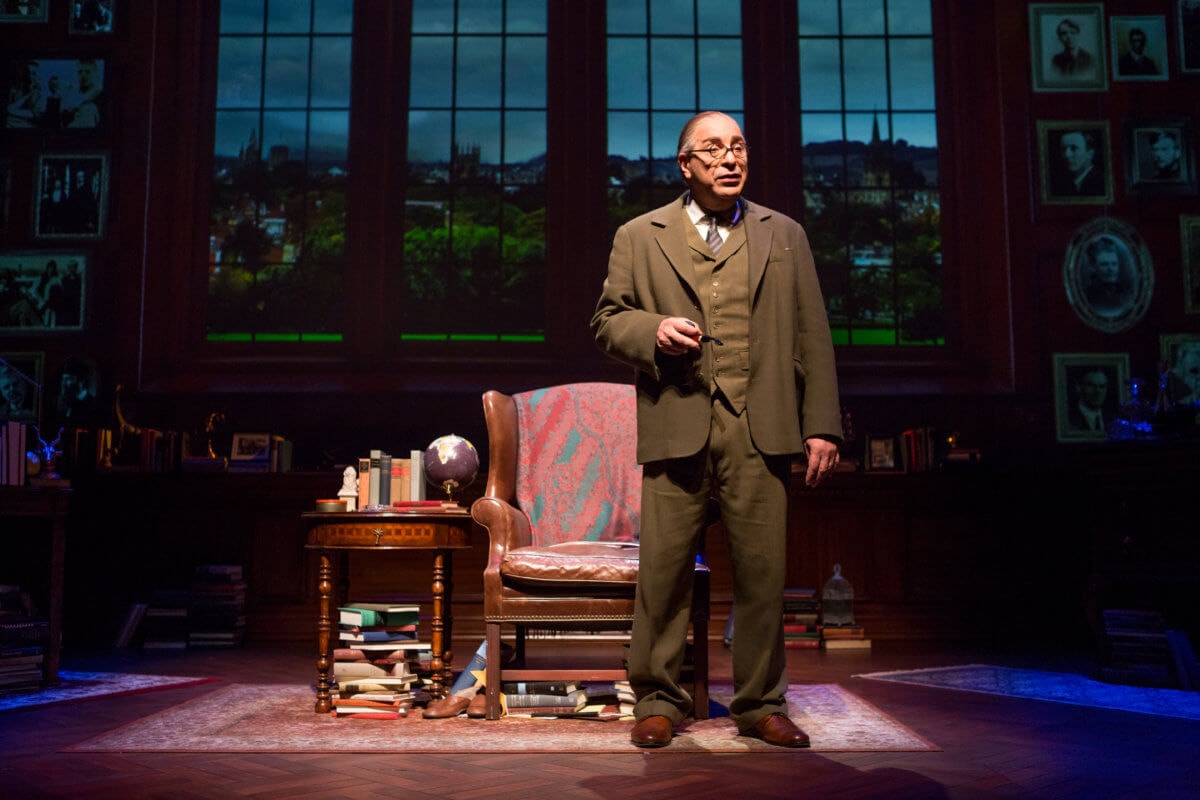That which I greatly feared had at last come upon me. In the Trinity Term of 1929 I gave in, and admitted that God was God, and knelt and prayed: perhaps, that night, the most dejected and reluctant convert in all England. I did not then see what is now the most shining and obvious thing; the Divine humility which will accept a convert even on such terms. The Prodigal Son at least walked home on his own feet. But who can duly adore that Love which will open the high gates to a prodigal who is brought in kicking, struggling, resentful, and darting his eyes in every direction for a chance of escape?” -C.S. Lewis, “Surprised by Joy: The Shape of My Early Life”

C.S. Lewis Onstage: The Most Reluctant Convert, a one-man play written, performed, and produced by Max McLean, opened the D.C. leg of its national tour on April 4 at the Lansburgh Theatre. In it, McLean portrays C.S. Lewis, the much-adored author, academic, and sometime theologian. In the 80-minute piece, Lewis recounts his own life story from childhood until his conversion from atheism to Christianity in his twenties. The play takes place prior to the publication of Lewis’ first Narnia story and decades before he met his wife, Joy Davidman. The play is well-paced, broken up into monologues distinguished by lighting cues.
While the play might be of particular interest to the believing crowd, it also serves as a backgrounder on one of the greatest novelists of the twentieth century. Hearing McLean piece together Lewis’ biography, including conversations with chums like J.R.R. Tolkien, as well as how his own literary heroes William Butler Yates and G.K. Chesterton influenced his worldview, proves fascinating to any student of 20th century British literature.
McLean is a fine actor but the construction of the piece as a one-man monologue recounting past events proved to be a little slow for this millennial. Rather than hearing Lewis tell stories of his conversations with those who influenced his life, I would have loved to have seen the story acted out. McLean clearly has the chops to play all of the critical characters in Lewis’ life. Turning the past tense stories into present tense action would have had me more engaged. Why tell a story when you can act it out?
Kelly James Tighe’s scenic design, Geoffrey D. Fishburn’s lighting design, and Rocco DiSanti’s projection design worked well together to create the world of C.S. Lewis’ study. The only nuisance was a fly that was crawling along the projector. It had no idea that it made its stage debut at the Lansburgh—a distracting visual. The audience also strained to hear key aspects of the monologue when McLean spoke more softly. One would hope the production team ironed that out by the second performance in the space.
Diehard fans of Lewis will thoroughly enjoy this play that pulls back the curtain on his early life and conversion. And for those who are more ambivalent, well, who doesn’t love an 80-minute no-intermission show?
Running Time: 80 minutes, with no intermission.
C.S. Lewis Onstage: The Most Reluctant Convert, presented by Fellowship for Performing Arts, plays through April 8, 2018, at Shakespeare Theatre Company’s Lansburgh Theatre – 450 7th St NW in Washington, DC. For tickets, call the box office at (202) 547-1122, or purchase them online.




